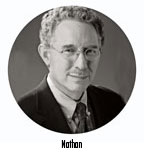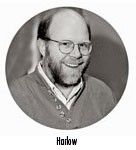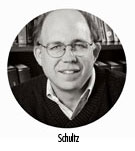2007 Laureate Lectures to Feature Distinguished Biomedical Scientists




Four distinguished biomedical scientists, including one who shared a Nobel Prize for research on the complexities of the human olfactory system, will be featured in the 2007 Senior Vice Chancellor’s Laureate Lecture Series.
Following is this year’s lineup of lecturers.
May 2—“New Opportunities at the Interface of Chemistry and Biology” by Peter G. Schultz, Scripps Professor of Chemistry at the Scripps Research Institute.
Upon being elected to the National Academy of Sciences in 1993, Schultz was recognized for such pioneering contributions at the interface of chemistry and biology as generating catalytic antibodies, developing and applying combinatorial methods in chemistry and biology, and developing biosynthetic ways to introduce unnatural amino acids site-specifically into proteins. This last initiative, which has effectively expanded the genetic code beyond the 20 common amino acids on which all proteins are built, holds the potential to create a new generation of proteins that work as novel catalysts and drugs and that are unrestricted by the properties of naturally occurring amino acids.
June 4—“Comparing the Roles of Protein Kinases Using High Throughput Functional Screens” by Edward E. Harlow, professor and chair of Harvard Medical School’s Department of Biological Chemistry and Molecular Pharmacology.
Harlow, a leading cancer researcher best known for his work on cell-cycle control in mammalian cells, focuses on new approaches for functional analysis of cells, including high throughput and unbiased screens for genes that affect key properties of cancer biology. In 1988, Harlow and his lab discovered how small DNA tumor viruses alter cell cycle control by synthesizing viral proteins that interact with and inactivate negative regulators of proliferation. Loss of these controls leads to cell proliferation in inappropriate conditions. This model is widely applicable to cancer, as the pathways targeted by these viruses are frequently mutated in human cancer. Discovering how these viruses subvert cell regulation also provided new insights into how mammalian cells control cell division.
Sept. 27—“Unraveling the Sense of Smell” by Nobel laureate Linda Buck, member and associate director of the Division of Basic Sciences and a Howard Hughes Medical Institute investigator at the Fred Hutchinson Cancer Research Center.
The underlying molecular mechanisms of the olfactory system—its ability to detect 10,000 or more distinct odors and translate them into what the brain perceives and remembers as specific smells—is the focus of Buck’s research. Her studies extend to an exploration of how smells affect reproductive physiology and behavior. While working as a postdoctoral fellow in the laboratory of Richard Axel at Columbia University, Buck identified a family of genes that encodes odor receptors in the lining of the nose. They went on to independently study the organization of the olfactory system in both the nose and the brain and eventually shared the 2004 Nobel Prize in Physiology or Medicine for their findings. In conjunction with her Laureate Lecture, Buck will receive the 2007 Albert C. Muse Prize for Excellence in Otolaryngology from the Eye and Ear Foundation of Pittsburgh and the Eye and Ear Institute of Pittsburgh.
Nov. 7—“Can Immunology Contribute to Chemotherapy? Challenges of Tuberculosis” by Carl F. Nathan, professor and chair of microbiology and immunology, R.A. Rees Pritchett Professor of Microbiology, and professor of medicine at Weill Medical College of Cornell University.
Nathan’s research is focused on the molecular mechanisms of innate immunity and host-pathogen interactions. His interests include the workings of macrophages and neutrophils, the role of inflammation in immunity, and the function of nitric oxide as a product of the immune system involved in host defense. Some of Nathan’s most recent work concerns the development of new approaches to discovery of drugs to treat antibiotic-resistant tuberculosis. For this and other neglected diseases, he advocates the pursuit of novel partnerships between university and industrial scientists.
All of the lectures, which are free and open to the public, will be presented in Auditorium 6 of Scaife Hall. Buck’s lecture will begin at 3:30 p.m.; the others are scheduled for noon.
“When I developed the Laureate Lecture Series several years ago, my purpose was to bring some of the most gifted, creative, and innovative scientists of our day to campus on a regular basis,” said Arthur S. Levine, Pitt senior vice chancellor for the health sciences and dean of the School of Medicine. “We continue to achieve that purpose with another outstanding panel of speakers this year, and I’m delighted to welcome them, not only for the benefit of our many scientists throughout the University but also because these visits provide a wonderful opportunity for the speakers themselves to discover what a dynamic research environment we have here.”
Other Stories From This Issue
On the Freedom Road

Follow a group of Pitt students on the Returning to the Roots of Civil Rights bus tour, a nine-day, 2,300-mile journey crisscrossing five states.
Day 1: The Awakening
Day 2: Deep Impressions
Day 3: Music, Montgomery, and More
Day 4: Looking Back, Looking Forward
Day 5: Learning to Remember
Day 6: The Mountaintop
Day 7: Slavery and Beyond
Day 8: Lessons to Bring Home
Day 9: Final Lessons

